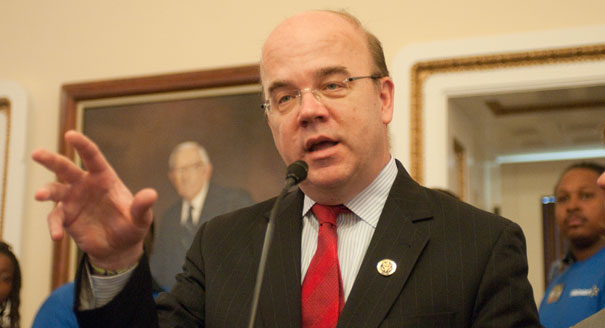
March 3, 2017 (SSNA) — Last January, former President Barack Obama eased the 19-year economic and trade sanctions on Sudan. The decision came as a response to the collaboration of the Sudanese government in the fight against terrorism, denying safe haven to the South Sudanese rebels and, improving humanitarian access to people in need.
This week, Jim McGovern, a senior House Democrat and leading voice in Congress on human rights, met with the Speaker of the Sudanese Parliament Ibrahim Ahmed Omer.
In a press release on Tuesday, the Democratic Co-Chair of the Tom Lantos Human Rights Commission said during the meeting that Sudan’s National Assembly and Omer in particular, “have been responsible for authorising many of the most repressive actions carried out by the regime of President Bashir.”
“And therefore are accountable for the murder of millions of their fellow citizens and for the humanitarian crisis in Sudan,” he added. According to the press release, the Congressman “plans to reintroduce bipartisan legislation this year to impose targeted sanctions on the Sudanese government for its genocidal acts and crimes against humanity.” McGovern insisted “on the continuing need for unfettered humanitarian access, the release of all political prisoners and the cessation of all hostilities” in order to further improving bilateral relationship between the U.S. and Sudan.
He accused the Sudanese government of renewing attacks against the Sudan People’s Liberation Movement/North (SPLM-N) positions in South Kordofan and the Blue Nile. “Rather than ensure humanitarian access to South Kordofan, Darfur and Blue Nile, Khartoum has renewed offensive operations in South Kordofan, in violation of the agreements reached with the Obama Administration that resulted in the easing of sanctions,” he pointed out.
South Kordofan and neighbouring Blue Nile states have been the scene of violent conflict between the SPLM-N and Sudanese army since 2011.
******
Congressman McGovern Meets with Sudanese Leaders to Discuss Humanitarian Crisis and U.S. Sanctions,
Press Release by Congressman Jim McGovern | Feb 28, 2017
WASHINGTON, D.C. – This week U.S. Congressman Jim McGovern (D-MA), a senior House Democrat and leading voice in Congress on human rights, met with Ibrahim Ahmed Omer, Speaker of the Sudanese Parliament.
In the meeting, Congressman McGovern reiterated his strong disagreement with the easing of U.S. sanctions against the Government of Sudan, an action taken at the end of the Obama Administration. Congressman McGovern expressed that the Sudanese Congress, and the Speaker in particular, have been responsible for authorizing many of the most repressive actions carried out by the regime of President Bashir, and therefore are accountable for the murder of millions of their fellow citizens and for the humanitarian crisis in Sudan.
In response to the Speaker’s interest in further improving Sudan’s bilateral relationship with the U.S., the Congressman insisted on the continuing need for unfettered humanitarian access, the release of all political prisoners and the cessation of all hostilities.
Rather than ensure humanitarian access to South Kordofan, Darfur and Blue Nile, Khartoum has renewed offensive operations in South Kordofan, in violation of the agreements reached with the Obama Administration that resulted in the easing of sanctions.
The Congressman plans to reintroduce bipartisan legislation this year to impose targeted sanctions on the Sudanese government for its genocidal acts and crimes against humanity.
Congressman McGovern has long been an outspoken critic of the repressive regime in Sudan. In May 2016, Congressman McGovern led a bipartisan letter with 120 lawmakers calling on President Obama to keep the Sudan humanitarian crisis a priority.
Eric Reeves is a Senior Fellow at Harvard University’s François-Xavier Bagnoud Center for Health and Human Rights.

